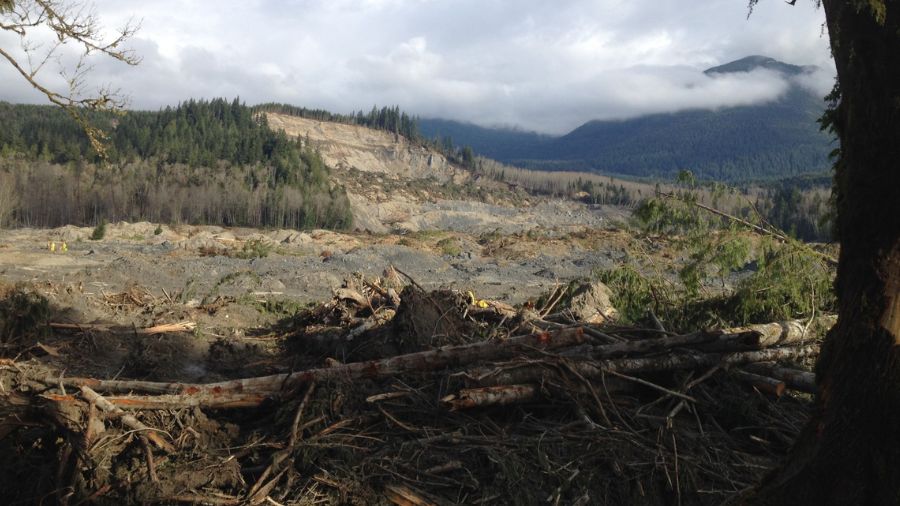How climate change will affect the Pacific Northwest
Aug 28, 2017, 12:53 PM | Updated: 5:14 pm

(File, AP Photo/Ted S. Warren, file)
(File, AP Photo/Ted S. Warren, file)
University of Washington climatologist Cliff Mass has taken a lot of heat for his stance on human-caused climate change. Now he is setting the record straight — with science.
“The current NW climate has been relatively unchanged so far,” Mass writes in a recent blog post. “But saying this has gotten me in total trouble with some local climate advocates, who call me all kinds of names for talking about this ‘inconvenient truth.’ I mean really nasty stuff, like being a ‘denier,’ a ‘contrarian,’ ‘dangerous,’ ‘losing my mind,’ and lately being sympathetic to ‘white supremacists.’ You deserve the truth, not manipulation, and exaggeration to ensure ‘you do the right thing.'”
Mass is a sought after authority on the weather, and is known for pointing out misleading information about climate change. He has shot down claims of global warming signs around the Northwest, and has feuded with Seattle journalists about the issue.
RELATED: Climate change did not kill this Seattle tree
But that doesn’t mean Mass is a climate change denier. Quite the opposite. In a recent blog post, Mass presents graphs and data on the “…state-of-the-science, one that will avoid hype or politicization of the issue. One based on peer-reviewed publications and the best models we have available. And an analysis that will be honest about what we don’t know and the uncertainties.”
So how have humans affected the region’s climate, according to Mass?
Heat islands: Humans have removed massive numbers of trees throughout Washington and have replaced them with buildings and concrete surfaces. This has caused urban area surfaces to warm by 5-10 degrees.
Reducing summer heat: Irrigation in Eastern Washington has caused summer temps to drop about 2-5 degrees in that region.
Mismanagement: Mismanagement of Eastern Washington forests and farm lands have removed surface vegetation. This has resulted in dust storms, increased fires and in turn, smoky / hazy air.
Climate change and the Northwest
Those effects don’t even address the issue of greenhouse gases — the common foe in human-influenced climate change. For that aspect of global warming, climatologists like Mass look at long term trends.
Temperatures between January and June have only trended up by about 1 degree in recent decades. Rainfall, snow pack, and droughts have not shown significant changing trends.
“The bottom line is that there has been little change in our regional climate over the past half century,” Mass writes. “This is in contrast to other regions (like the Arctic and continental interiors). One reason for our static situation is the vast Pacific Ocean, which has not warmed up much during the past 50+ years.”
“The science is clear: increasing greenhouse gases will warm the planet,” he states, noting that there are “nuances” in how the Earth will warm. The Northwest is a good example of such nuances.
Less snow at lower elevations: Less snow will fall at lower elevations. Snow reflects heat, so less snow means warmer temperatures around lower elevations. Less snow pack means less river flow during the summer. This means there will be a need for more reservoirs to store rainwater.
Precipitation: There could be about a 5-10 percent increase in regional precipitation. Extreme precipitation events by 2100 could rise by 30-40 percent, Mass writes. This means rivers flooding more often, and floodplains being affected more severely.
Warming will be slow, and then “rev up:” Warming around the Northwest will be relatively slow, according to Mass’ models. But by around 2050, things start to heat up. By 2090, there will be greater temperature increases. The number of days each year spent above 90 degrees will dramatically increase.
“For all of you under 40, you should make a note to yourself to buy an air conditioner in 2050. Maybe two,” Mass writes.













